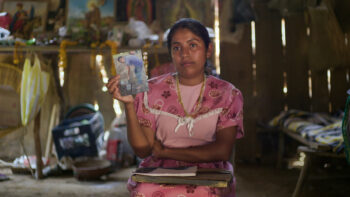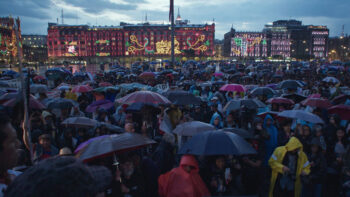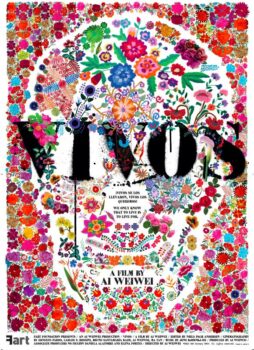Film Review: Vivos (NZIFF)
A mother looks out into the cornfields surrounding her home, the image of both strength and vulnerability, talking about the horrific grief that comes with losing a son during a student prank – without knowing what happened to him. Ai Weiwei, a contemporary artist and activist, directs Vivos, a visually stunning examination of how a family copes with this ultimate loss.
An undergraduate tradition at Escuela Normal Rural Raúl Isidro Burgos, a teachers college in Ayotzinapa, Iguala, Guerrero, Mexico, was to steal buses on occasion to get themselves to an event and then return them when they were done, a rite of passage. On the night of 26 September 2014, this went horribly wrong. Of the cohort, 6 students were killed, others wounded, and 43 were violently abducted and have not been seen again. It has been surmised that they may have inadvertently stolen a bus laden with millions of dollars of heroin destined for the US, and were intercepted by the cartel with support from the local authorities.
No clear answer as to exactly what happened to the students has been provided to families and the public. A mishandled Government investigation led to an official conclusion on the case, dubbed the ‘historic truth’, that has been dismissed by experts and rejected by the families.
 Through the film Vivos (2020), Ai Weiwei, a contemporary artist and activist, helps the families of the disappeared tell their story of the impact of their sons and brothers’ disappearance on their daily lives. Ai Weiwei is a prolific artist and filmmaker, his last documentary feature, Human Flow, centered on the global refugee crisis. Extremely vocal on political and social issues, Ai Weiwei, a Chinese national, is currently in exile in Germany due to his critique of the Chinese Government’s position on human rights.
Through the film Vivos (2020), Ai Weiwei, a contemporary artist and activist, helps the families of the disappeared tell their story of the impact of their sons and brothers’ disappearance on their daily lives. Ai Weiwei is a prolific artist and filmmaker, his last documentary feature, Human Flow, centered on the global refugee crisis. Extremely vocal on political and social issues, Ai Weiwei, a Chinese national, is currently in exile in Germany due to his critique of the Chinese Government’s position on human rights.
The film does not centre around the facts and figures of the case, it focuses on the families. A film about grief and loss, it is also a film about hope and perseverance, hope for the future, and unrelentless perseverance for answers. The students hail from small indigenous rural farming communities, farmers of corn, coffee, hibiscus, and sugarcane. The effect of the students’ disappearance has had a devastating impact on their communities and families, with one father expressing how he can no longer feel joy since his son’s disappearance. The families are understandably frustrated with the lack of support from the authorities, as one mother states “we all love our children, they love their children”.
 That’s where the power of this film comes from, it ardently emphasises shared humanity. We all need to eat, we love our children, family and community are essential to our wellbeing, and we all want to make the most of the opportunities afforded to us to better our lives for ourselves and our children. The restrained cinematic pace gives the families the time and space to tell their stories without sensationalising or reducing them.
That’s where the power of this film comes from, it ardently emphasises shared humanity. We all need to eat, we love our children, family and community are essential to our wellbeing, and we all want to make the most of the opportunities afforded to us to better our lives for ourselves and our children. The restrained cinematic pace gives the families the time and space to tell their stories without sensationalising or reducing them.
The film has brief interviews with a number of those involved in investigating and reporting on the case including Francisco Cox Vial (Human Rights Lawyer, Inter-American Commission on Human Rights), Temoris Grecko (Journalist), and Kate Doyle, (Senior Analyst of US Policy in Latin America).
 The film shows incredible footage of the region and its people, the absolute vibrancy of colour they fill their surroundings with. Although poor people, the film delicately conveys the beauty of their lands and respects their homes. A must watch.
The film shows incredible footage of the region and its people, the absolute vibrancy of colour they fill their surroundings with. Although poor people, the film delicately conveys the beauty of their lands and respects their homes. A must watch.
Vivos is part of the New Zealand International Film Festival, showing in theatres and online. For tickets/online access, please go HERE:
Andy Baker
- The D4 & Schizophonics – Powerstation: March 18, 2023 - March 19, 2023
- Movie Review: Cousins, Directed by Ainsley Gardiner and Briar Grace Smith - March 7, 2021
- Film Review: Amundsen Dir: Espen Sandberg - December 16, 2020

